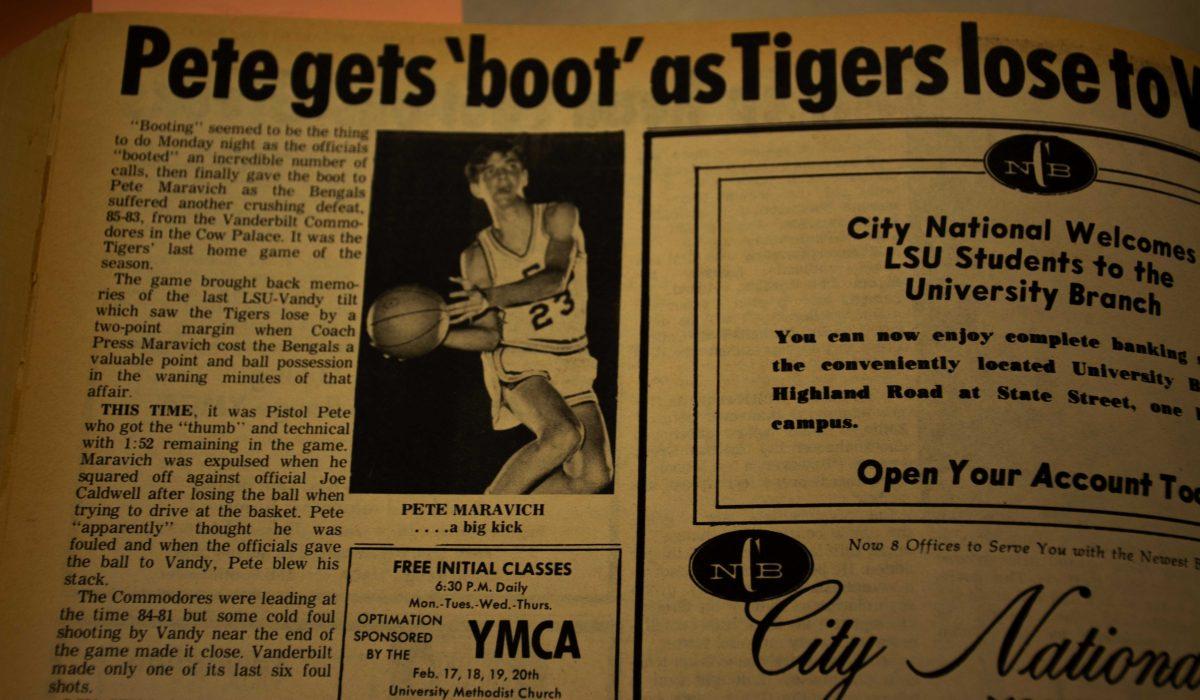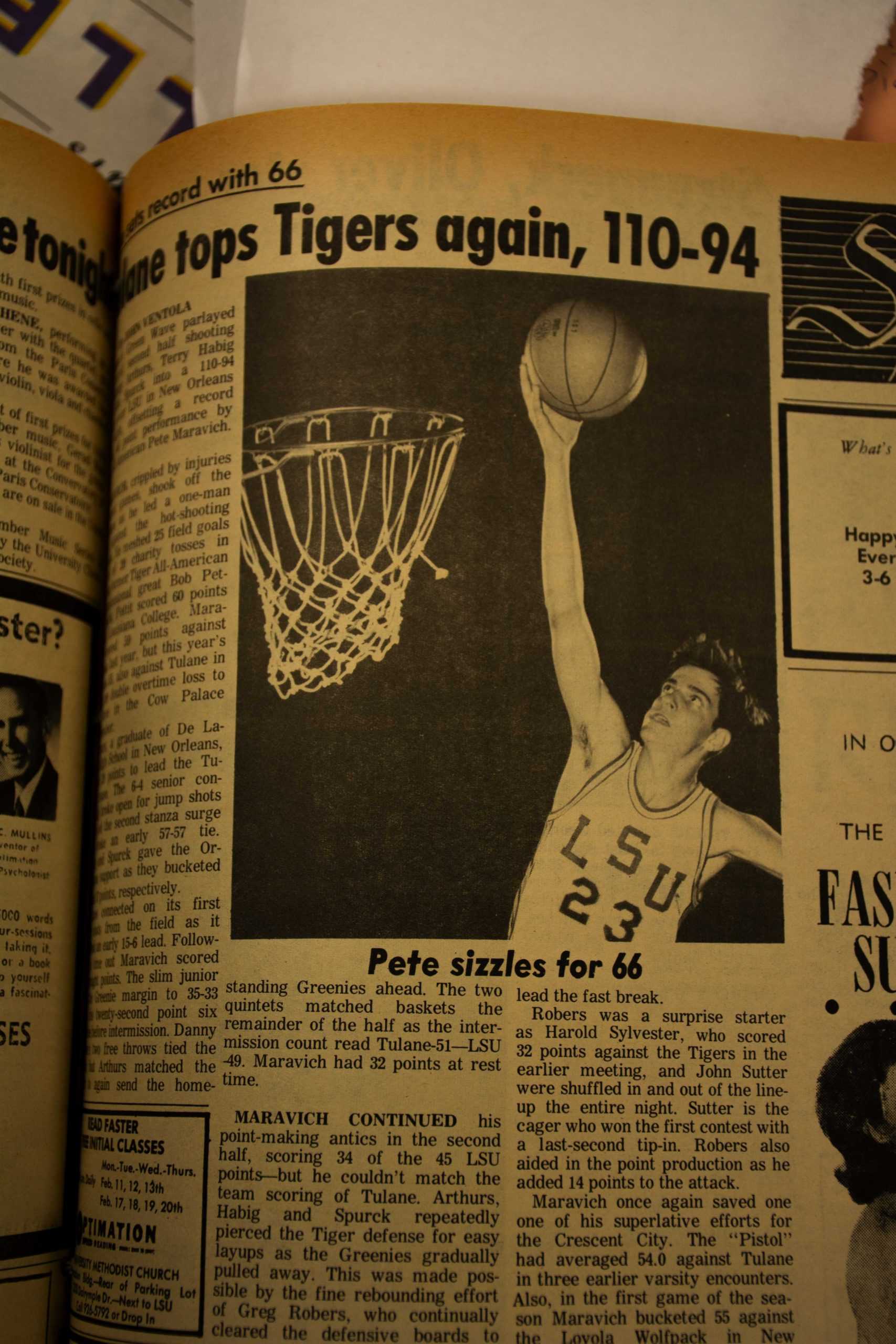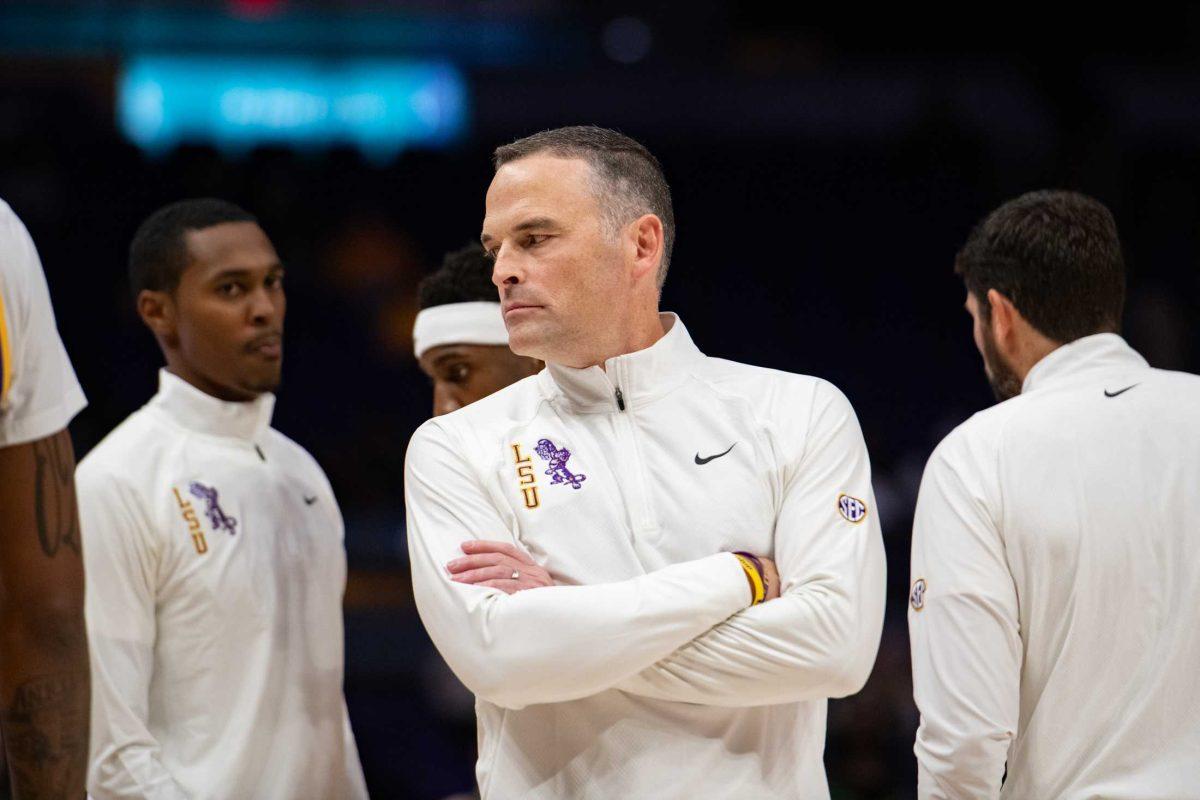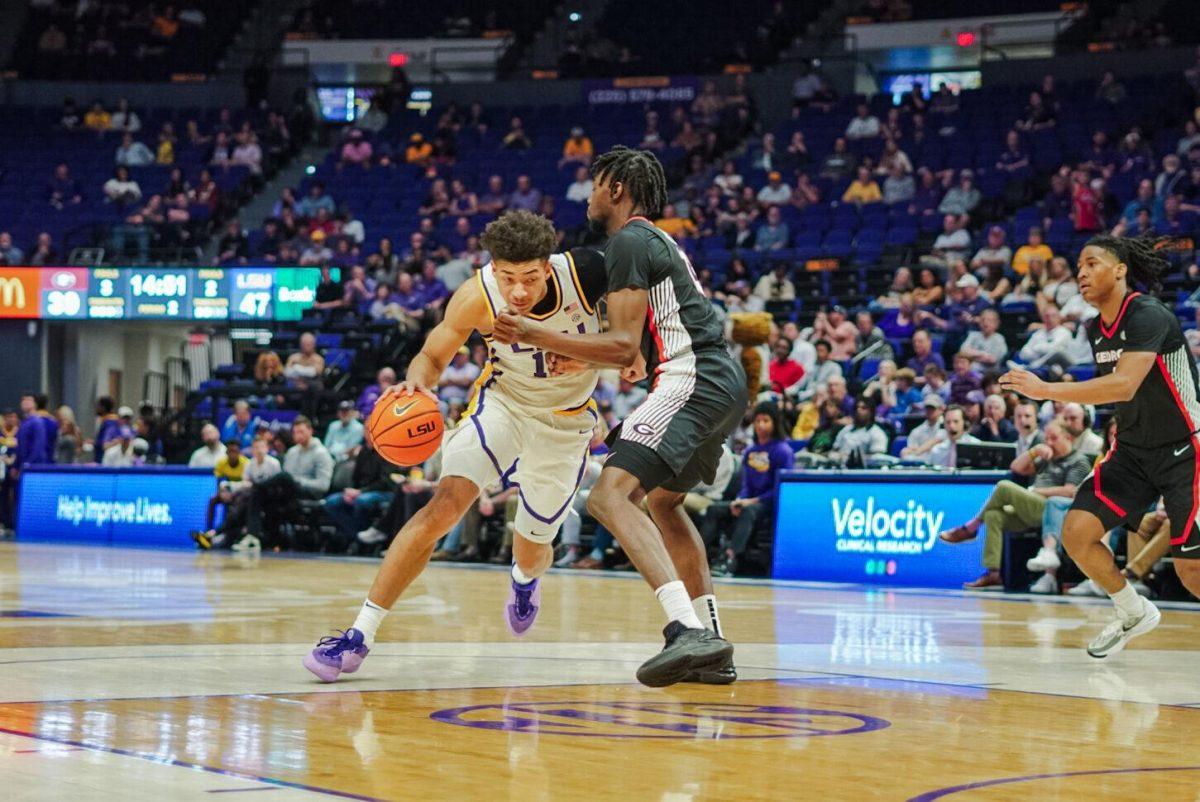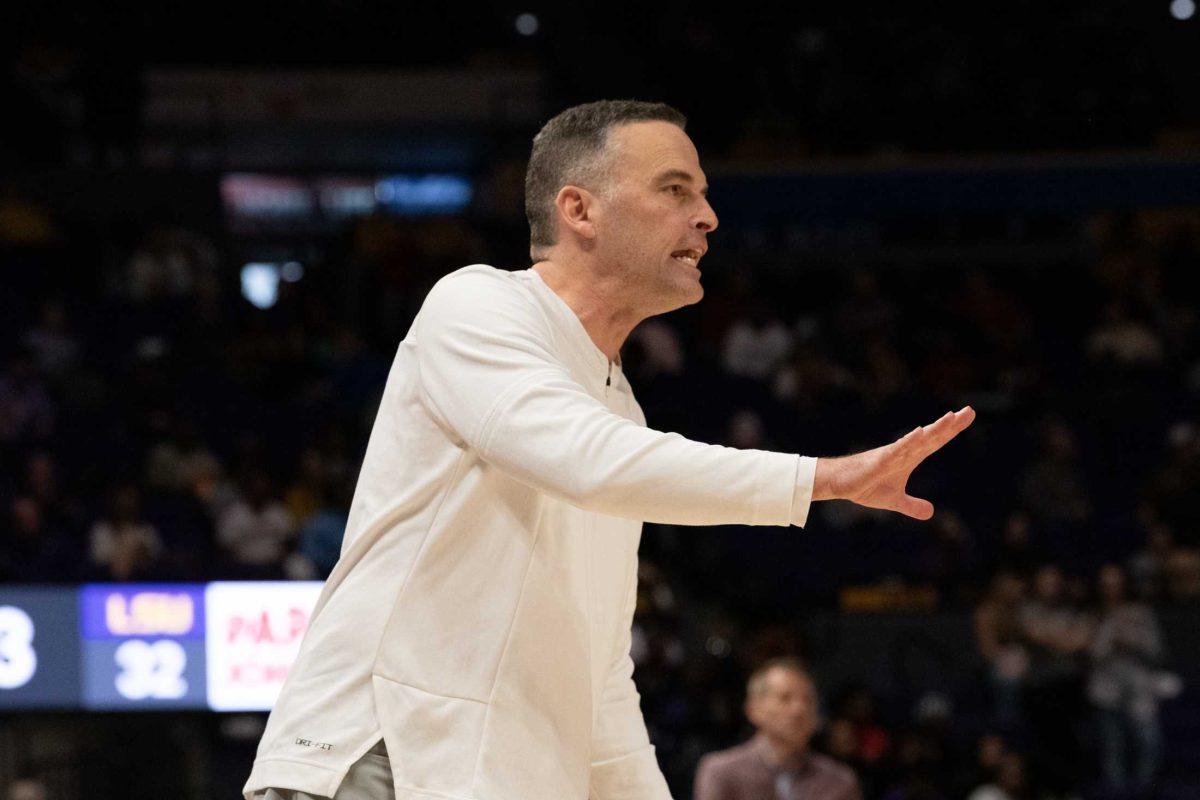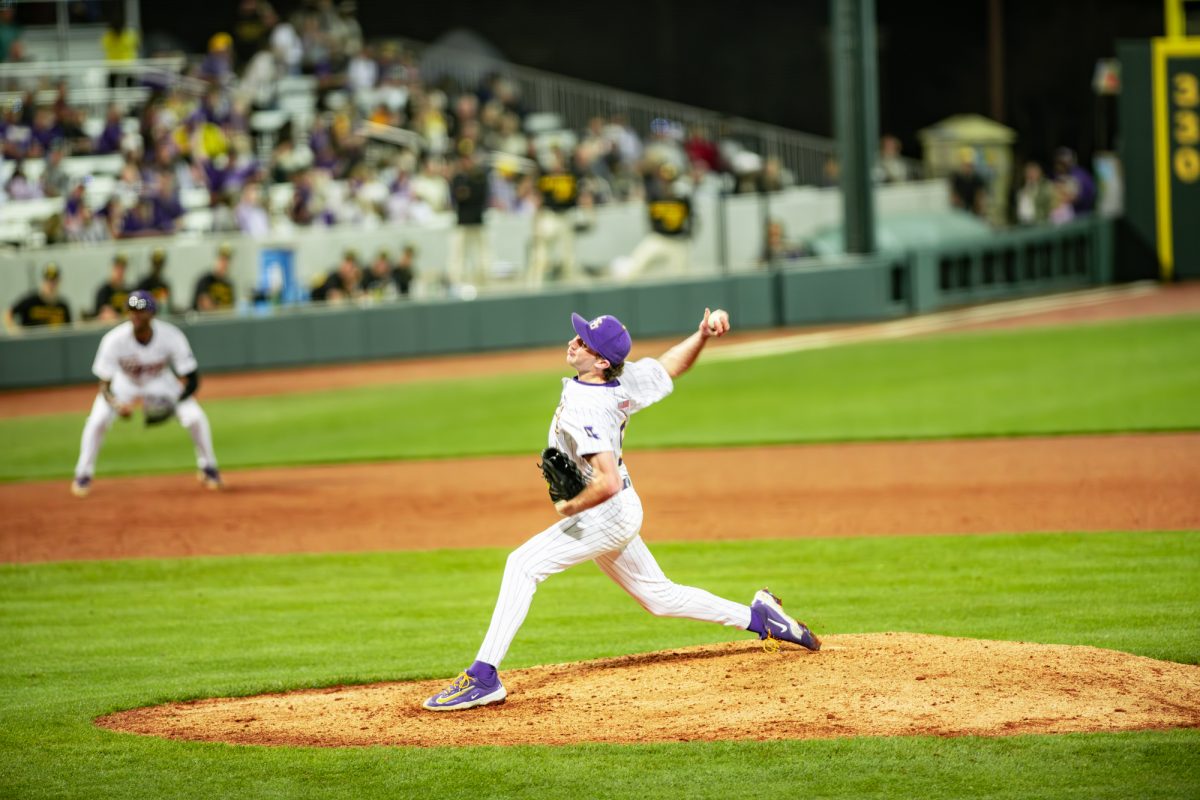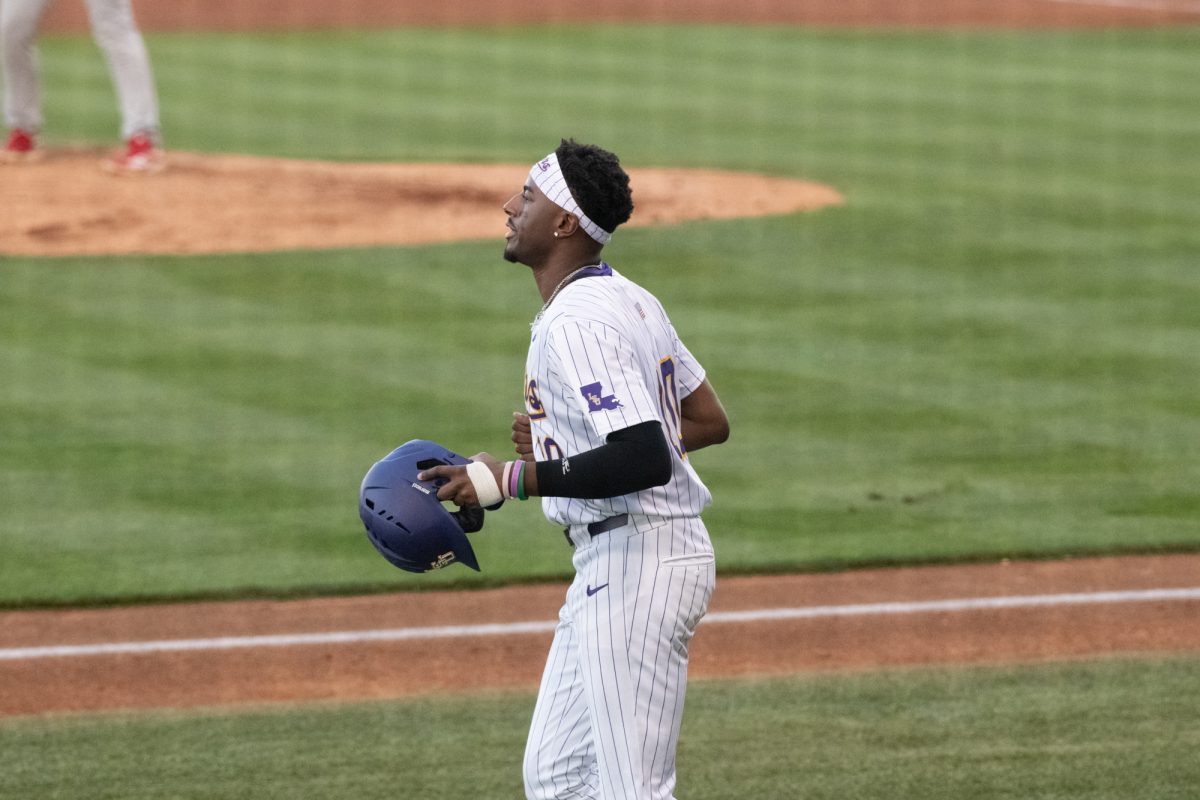“Pistol Pete” Maravich was a man before his time, and his legacy will live on through records, infamous moments and psychic-like predictions.
Maravich called several places home throughout his life. Maravich’s father, Press, was a professional basketball player, so the family would move according to the team he was employed by.
Once Maravich was born, his father played for the Pittsburgh Ironmen in 1947, so Pete lived most of his childhood in Aliquippa, Pennsylvania. The high school years were split into two different states as Press went from Coaching Clemson in South Carolina to coaching North Carolina State. As Pete grew older, his family moved with him to Louisiana as Press became the head coach at Louisiana State University. Maravich would eventually play for his father and become the legend he is today.
Maravich could not start out his college career as a freshman like athletes in today’s game. LSU did not allow first-year students to participate in varsity sports, so he had to wait until his sophomore year to torch his opponents. ‘Pistol Pete’ overloaded defenses with a long-range shooting attack. He would attempt shots from as far as 30 feet—an NBA three-point shot is 23 feet—but the catch—there was no such thing as a three-point shot. Despite this, Maravich still recorded impressive numbers throughout his college career, averaging 44.2 points per game. Maravich won All-American honors all three years and won National player of the year honors twice. It is safe to say that Maravich is one of the most decorated college athletes of all time.
Maravich scored a tremendous number of points throughout his time in the NCAA. Not only is it impressive that he scored a record setting amount in only three seasons, but no player has come close to breaking it. Even with the three-point line being introduced, the closest someone has gotten recently is third place with 3,225 points by Chris Clemons, 2015-2019 at Campbell.
Maravich is compared to Stephen Curry due to the similar playstyles, though, the comparison at the college level is not even close. Curry averaged per game 25 points, 3.7 assists and 4.4 rebounds compared to Maravich’s 44.2 points, 5.1 assists and 6.4 rebounds. They both played a total of three seasons, but Curry, with 104 games played, has played 21 more games than Maravich, 83.
In total, Curry scored 2,635 points throughout his three years at Davidson. Curry made 414 total three-point shots, putting him at 2,221 points total without the deep ball. By the numbers, Maravich has a stronger resume than Curry in their college years with 1,032 more points, 37 more assists and 55 more rebounds.
When Maravich finished his eligibility at LSU, he left Louisiana and headed to the big stages. He entered the 1970 NBA Draft, and was drafted third overall by the Atlanta Hawks. He played for the Hawks for four seasons, where in his last two seasons there he was selected to the all-star team. After his first four seasons, Atlanta traded Maravich to the New Orleans Jazz. He was sent back to the state in which he became a legend, and he earned all-star honors three more times.
Maravich transferred his success on the court in college to the NBA. In 1977 against the Knicks he had a historic game, racking up 68 points. Maravich is one of six (Pete Maravich, Lebron James, Michael Jordan, Oscar Robertson, Larry Bird and Jerry West) to have a career-per-game average of 24 points, 5 assists and 4 rebounds. However, Pete is the only one of those six to have not won an NBA championship.
Maravich saw great individual success as a professional, however. his team around him was not the best. He only played with two all-stars in his first nine seasons. He still managed to leave behind an impressive mark on the game.
“We’re all doing things he did first,” said Steve Nash when asked about Pistol Pete’s impact on the game.
Maravich never desired a long professional career, as once saying, “I don’t want to play 10 years in the NBA and die of a heart attack at age 40.”
Coincidentally, he predicted his exact age and cause of death, as he passed away during a pickup basketball game in a church. Mere moments before his passing, he told others he felt great before collapsing to the ground.
Maravich leaves behind a legacy so strong that LSU named its basketball arena after him. He was a game-changing player who influenced future generations of NBA athletes. The Maravich family will always be remembered in Louisiana, and Pete will always go down as one of the best to play not only at LSU, but in college basketball as a whole.


